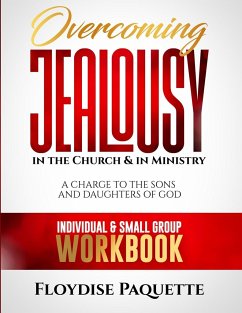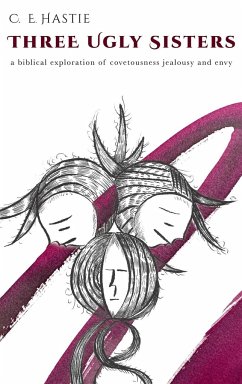
When Jealousy Takes Aim

PAYBACK Punkte
7 °P sammeln!
The throne room of King Saul, once a place of authority and divine promise, had become a battleground of jealousy. Saul's eyes, burning with anger, fixated on David, the young shepherd-turned-warrior who had won the people's hearts. The javelin in Saul's grip trembled, a weapon of fear and envy. Once anointed by God, Saul now heard only the haunting refrain: "Saul hath slain his thousands, and David his ten thousands." The favor of God, the love of the people, and even the loyalty of Saul's own family seemed to belong to David. Yet David, humble and devoted, played his harp to soothe the king'...
The throne room of King Saul, once a place of authority and divine promise, had become a battleground of jealousy. Saul's eyes, burning with anger, fixated on David, the young shepherd-turned-warrior who had won the people's hearts. The javelin in Saul's grip trembled, a weapon of fear and envy. Once anointed by God, Saul now heard only the haunting refrain: "Saul hath slain his thousands, and David his ten thousands." The favor of God, the love of the people, and even the loyalty of Saul's own family seemed to belong to David. Yet David, humble and devoted, played his harp to soothe the king's troubled soul. But the music could not calm Saul's jealousy. In a sudden fit of rage, he hurled his javelin, aiming to pin David to the wall. The sharp sound of the weapon slicing through the air was deafening, but it missed. David, quickened by God's protection, dodged the attack and fled. This was not an isolated outburst but a chilling pattern of Saul's decline. Even Jonathan, his own son, felt the sting of jealousy when he defended David. At a royal feast, Jonathan questioned his father's hatred: "Wherefore shall he be slain? What hath he done?" But Saul, blinded by insecurity, turned his fury on his son, hurling another javelin in anger. Jonathan escaped, but trust was shattered. Saul's jealousy destroyed the very relationships that once strengthened his reign. He had loved David, bringing him into the palace as a musician and warrior. But envy twisted love into hatred. Jonathan, caught between his father and his friend, displayed unwavering loyalty to David, risking his own life to protect him. Their friendship, built on selflessness and faith, stood in contrast to Saul's fear-driven rage. This was not just a personal feud but a spiritual battle. Saul's jealousy revealed his separation from God. The Lord had departed from him, leaving a void filled with fear and wrath. Meanwhile, David's survival was proof of God's protection over His anointed. Each time Saul sought to kill him, David escaped, a foreshadowing of the kingdom he would one day inherit. Yet, even in his madness, Saul had moments of clarity. When David spared his life, Saul wept, calling him "my son" and admitting he would be king. But these moments of remorse were fleeting, consumed by the jealousy that ultimately led to his downfall. Saul's tragic story is a warning of envy's destructive power. How often does jealousy take aim in our lives? How many javelins do we throw with our words, actions, or thoughts? This story challenges us to examine our hearts, to root out jealousy before it takes hold, and to seek the humility and faith of David. It is a tale of brokenness and betrayal, but also of mercy and divine protection. Jealousy may aim to destroy, but it cannot defeat God's plan. As the javelin remains lodged in the wall, we are left to ask: When jealousy takes aim in our hearts, will we let it consume us like Saul, or will we trust God and rise above it like David?














